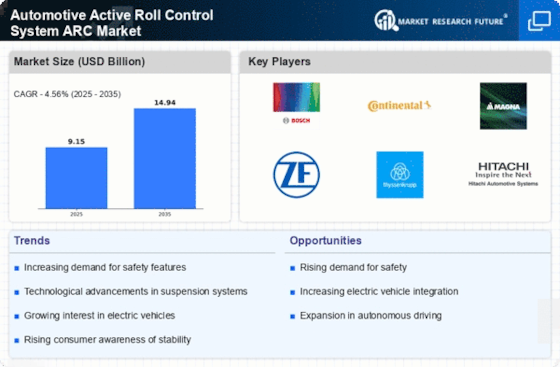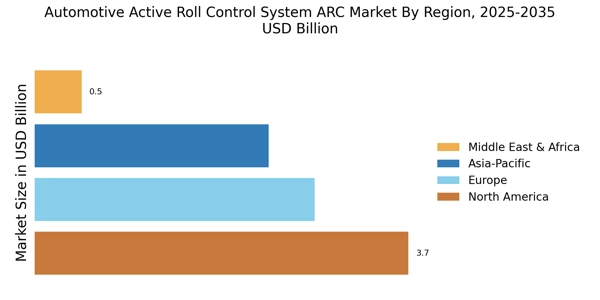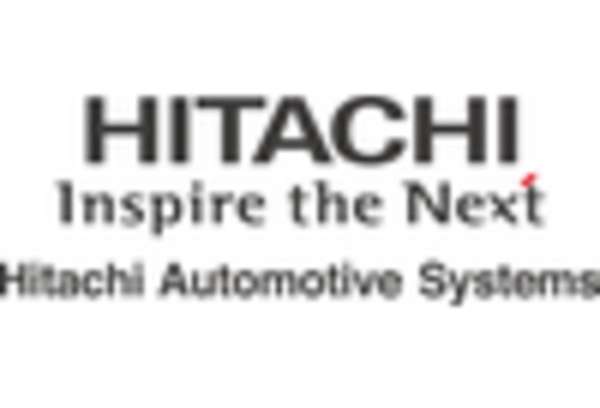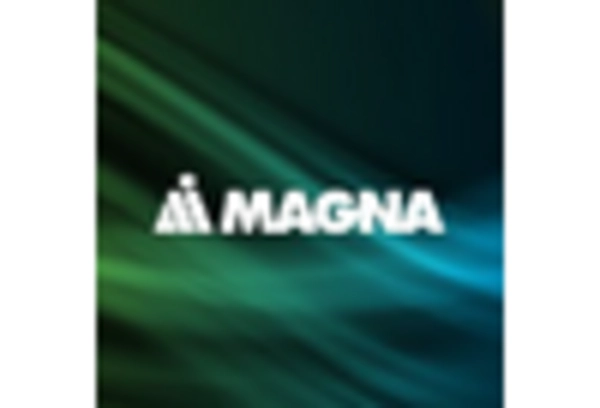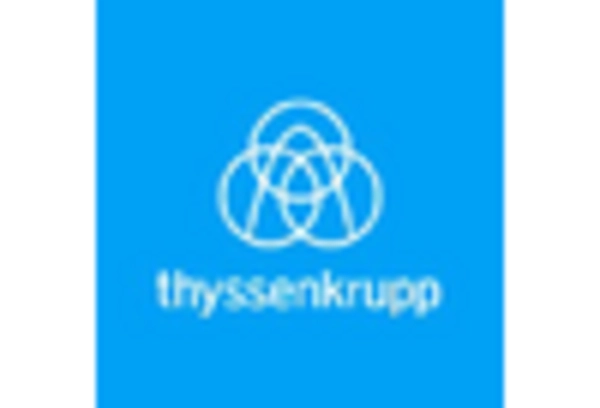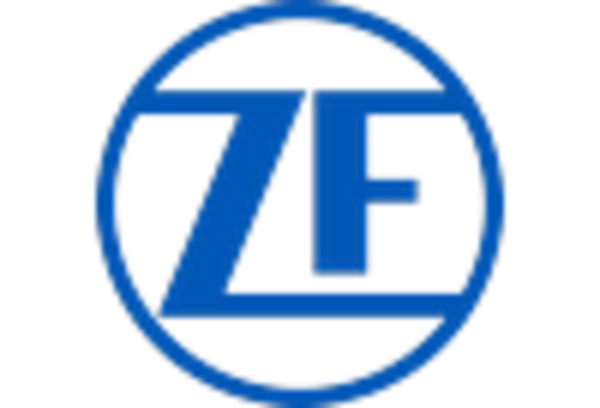Increasing Focus on Safety Features
Safety remains a paramount concern in the Automotive Active Roll Control System ARC Market. With regulatory bodies imposing stricter safety standards, manufacturers are increasingly adopting active roll control systems to meet these requirements. The integration of ARC systems not only enhances vehicle stability but also contributes to accident prevention by improving cornering performance. Market data suggests that vehicles equipped with advanced safety features, including ARC, are witnessing higher consumer preference, which in turn is likely to propel the growth of the ARC market. As safety regulations evolve, the demand for innovative solutions in the automotive sector is expected to rise.
Environmental Concerns and Fuel Efficiency
Environmental concerns are becoming increasingly relevant in the Automotive Active Roll Control System ARC Market. As manufacturers strive to produce more fuel-efficient vehicles, the integration of ARC systems is seen as a viable solution to enhance overall vehicle efficiency. By improving handling and reducing energy loss during cornering, active roll control systems can contribute to better fuel economy. Market Research Future suggest that vehicles equipped with ARC technologies may achieve fuel efficiency improvements of up to 15%. This potential for enhanced efficiency aligns with the industry's broader goals of sustainability and reduced emissions, thereby driving the growth of the ARC market.
Rising Demand for Enhanced Vehicle Stability
The Automotive Active Roll Control System ARC Market is experiencing a notable increase in demand for enhanced vehicle stability. As consumers become more discerning regarding vehicle performance, manufacturers are compelled to integrate advanced roll control systems to improve handling and ride comfort. This trend is further supported by data indicating that vehicles equipped with active roll control systems can reduce body roll by up to 50%, thereby enhancing overall driving dynamics. The growing awareness of the benefits associated with improved stability is likely to drive investments in ARC technologies, as automakers seek to differentiate their offerings in a competitive marketplace.
Growing Popularity of Performance-Oriented Vehicles
The Automotive Active Roll Control System ARC Market is witnessing a surge in the popularity of performance-oriented vehicles. As consumers increasingly seek vehicles that offer superior handling and agility, manufacturers are responding by incorporating active roll control systems into their designs. This trend is particularly evident in the sports and luxury vehicle segments, where the demand for enhanced driving experiences is paramount. Market data reveals that the performance vehicle segment is expected to grow at a CAGR of 10% in the coming years, further driving the adoption of ARC technologies as a means to achieve optimal performance.
Technological Advancements in Automotive Engineering
The Automotive Active Roll Control System ARC Market is significantly influenced by rapid technological advancements in automotive engineering. Innovations such as real-time data processing and adaptive control algorithms are enhancing the effectiveness of ARC systems. These technologies allow for precise adjustments to suspension settings, thereby optimizing vehicle performance under varying driving conditions. Market analysis indicates that the adoption of such technologies is projected to increase, with a compound annual growth rate (CAGR) of approximately 8% over the next five years. This growth is indicative of the industry's commitment to integrating cutting-edge solutions that enhance vehicle dynamics.
.png)

